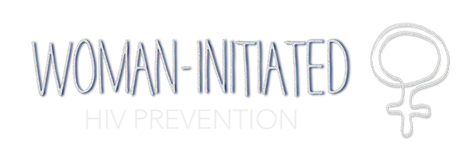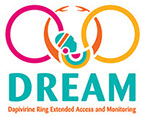



Open-label research
IPM is conducting research to gather insights into how women might use the ring in the context of known clinical efficacy. Two open-label extension studies (OLEs) that provided the active ring to former Phase III participants completed in late 2018 and early 2019. The OLEs, called DREAM and HOPE, saw higher product use with no safety concerns, and suggested greater risk reduction compared to the Phase III trials. The results, along with acceptability data, will be used to inform the strategy for the ring’s rollout if it is approved.
DREAM and HOPE: Key findings from the OLEs
- The ring showed the same strong safety profile in the OLEs as in the Phase III studies.
- Modeling data indicate that women’s HIV risk was reduced by 63% in DREAM and 39% in HOPE.
- Although different studies of the same product often see different results, taken together, the data from DREAM and HOPE suggest that HIV risk was reduced by more than half across both studies, compared to about 30% in the Phase III trials.
- While the OLE modeling data are limited due to the lack of a placebo comparison group, they indicate an encouraging trend we hope to see continue if the ring is approved and rolled out.
- The proportion of women who used the ring at least some of the time increased from over 80% in the Phase III trials to over 90% in the OLEs.
- Unlike DREAM, women could participate in HOPE whether or not they chose to use the ring. The majority chose to use the product, with 92% accepting the ring at the beginning of the study and 73% accepting the ring for the full 12 months of follow-up, demonstrating that most women in the study found the product to be acceptable.
Understanding the motivators and challenges to using different types of HIV prevention products is critical to ensuring women can choose the one that works best for them. IPM is collaborating with the US National Institutes of Health-funded Microbicide Trials Network (MTN), which led the ASPIRE and HOPE trials, on additional studies to explore the dapivirine ring’s use by women at different times in their lives.
In 2018, IPM and MTN continued preparing for safety and acceptability studies of the monthly ring and daily oral PrEP among key groups in Africa that remain at extremely high risk for HIV. A study called REACH began in 2019 to assess use of and preferences for both products among adolescent girls and young women, and similar studies among pregnant and breastfeeding women are planned to begin in late 2019 and early 2020, respectively. If the monthly ring is approved, results from these studies will inform potential expansion of regulatory approvals for the ring’s use by these key groups.